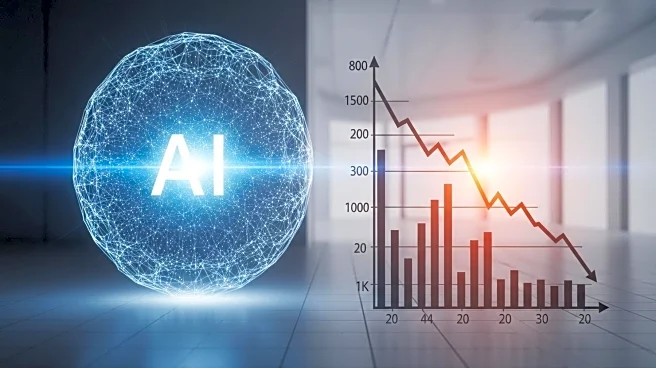What's Happening?
The S&P 500 experienced a mixed trading session, with Oracle Corporation leading gains due to strong demand for its cloud infrastructure business driven by AI. Oracle's stock soared by 36%, despite fiscal first-quarter results falling short of expectations. The company raised its guidance, anticipating major customer additions. Conversely, Synopsys Inc. saw its shares plummet by 36% after missing quarterly estimates and lowering forecasts. The broader market saw the S&P 500 rise by 0.3%, while the Nasdaq posted a slight gain and the Dow fell by 0.5%. The session was influenced by a report indicating a decline in wholesale inflation, ahead of the Consumer Price Index release.
Why It's Important?
Oracle's stock surge underscores the growing importance of AI in driving business growth, particularly in cloud services. This trend reflects broader shifts in the tech industry, where companies are increasingly leveraging AI to enhance their offerings and capture market share. Oracle's performance has implications for its competitors and the tech sector at large, highlighting the potential for AI-driven revenue growth. On the other hand, Synopsys' decline points to challenges in the semiconductor design software market, affecting investor confidence and potentially influencing future investment strategies. These developments are crucial for stakeholders in the tech and semiconductor industries, as they navigate evolving market dynamics.
What's Next?
Oracle's positive outlook may lead to increased investor interest and further stock appreciation, as the company capitalizes on AI demand. The tech industry is likely to see continued investment in AI capabilities, with companies seeking to expand their market presence. Synopsys may need to reassess its strategies to address missed estimates and regain investor confidence. The upcoming Consumer Price Index release could further impact market sentiment, influencing trading patterns and investment decisions. Stakeholders will be closely monitoring these developments, as they could have significant implications for the tech sector and broader economic trends.










